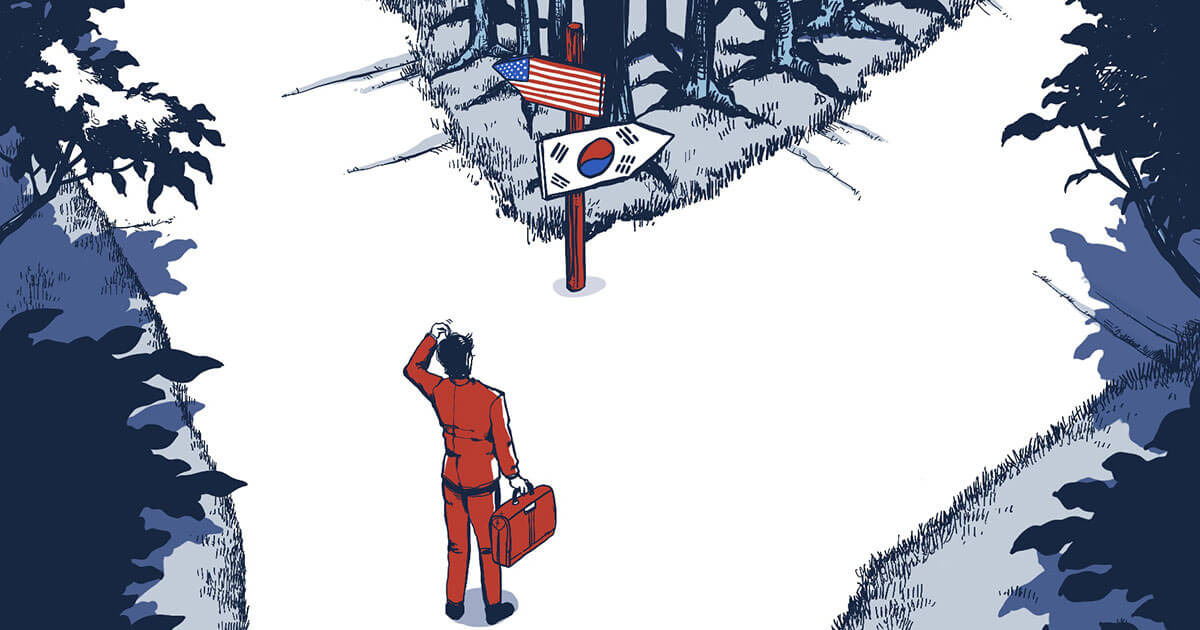
A 10-year-old girl looks out to a bare and large soccer field of her elementary school. Standing on the elevated platform, she can see all around her meaningful landmarks from her first decade of memories in Ilsan, Korea, all she’s ever known. Her parents’ church on top of a three-story building is straight in front of her, only slightly covered by newly planted trees around the school. Her house sits behind her, and the piano school she’s been attending can be seen on her right. Taking in the playgrounds and the streets she roamed with her little brother and classmates, her limited, child’s senses capture her entire world seen and unseen.
She and her family will move to the States in a few days, a return date up in the air, but she doesn’t know that yet. Maybe three years max, and we’ll be back, her parents assure her. Take a good look right now, the girl tells herself, silently saying her goodbyes, because everything is going to change. It’ll never be the same again.
That was me in 1998. Twenty years have since passed, and I’m now sitting at Terminal B in the Los Angeles International Airport with my suitcase and a backpack, about to board a one-way flight back to Korea. I have a little bit of time to munch on the kimbab my mom packed, watch other passengers glued to their phones, sip my afternoon espresso, and reflect. Long-simmering disappointments have brought me here, to my open-ended future with more open-ended questions. This trip to Korea would be my personal testing of a hypothesis: That race would not define my belonging, but maybe land could.
In “The Christian Imagination”, the author Willie Jennings proposes that prior to the concept of “race” , there was another way of identifying yourself, finding belonging, and ultimately, communion: through land. Places, home tribes, landmarks, collective memories, and narratives defined who you were as well as who you were becoming, providing the literal ground for a moral development of society. In the same way that we think of sacred texts and social media today — as shapers of our values and ideals — land gave people stories of what it meant to be good and true.
Then came the awareness of white skin as a way to identify “us” versus “them”, or who belonged and who didn’t, via conquering European kings and priests, and it de-centered and eventually severed human ties to land. Jennings explains that so much of the world today has lost who we were and how we could be because of the construction of race replacing land as our basis for belonging. He further argues that the Western Christian tradition, which developed in tandem with this new world order, could only be diseased and therefore needs a cure.
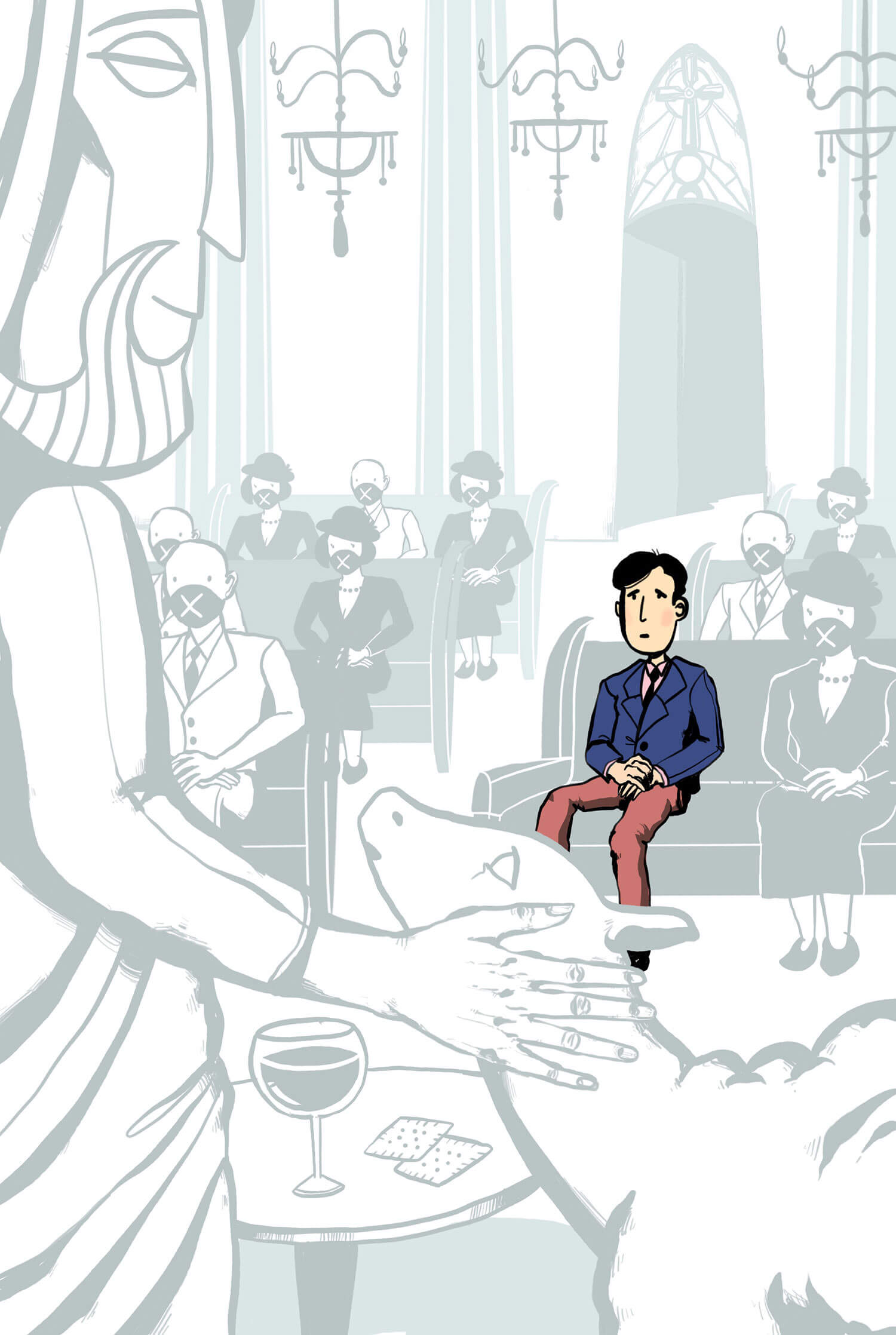
When I first read this, I wanted to proclaim to the world, “I’m not crazy!” There might be a source to my elusive sense of loss after all. I had “homesick” written all over me, feeling that I lacked a home to speak of, in neither Los Angeles nor Seoul; the Bay Area where I had tried to make a home for the past decade only began to reveal the depth of my alienation. I am definitely not the first, nor the last, to confess that I have been deeply disappointed with the shallow expression of communal life in the North American evangelical body. When compared with almost any other non-European members of the global Church, certain values seemed nonexistent, like rootedness (showing up in your own neighborhood) and embodiment (of life’s intimate joys and pains shared together, over time, over meals, over funeral expenses) and ministry of presence (not problem-solving). And my church community was full of people trying their hardest, against so many odds, to live out these values. Yet it was not enough.
The longer I thought about how to recover my connection to land and thereby retrieve a sense of belonging, the more I saw my daily life being lived in “white” racialized spaces. I worked and shopped and volunteered and commuted and prayed in a space physically occupied by the influx of white men exploited by the tech industry, which included Asian Americans comfortable in that context. This space was also dominated by the same market force that denied home for the Ohlones and the Black community, still reeling from the loss of land some 500 years ago, and to this day by gentrification. Generations continue dealing with the devastating loss of home, kinship, and along with the land, identity. I can only confess that I also long for the promised oneness, a communion, a homecoming to and with the God who says God is with the people. I wonder if something else is possible.
To be fair, my disappointment did not begin or end with just the church. I had another growing suspicion in pockets of the progressive movement I was involved in. Sayings like “We’re taking our country back” or “We are all Americans”, even proposing to “reclaim” the phrase Make America Great Again, were thrown around at rallies and conferences since Trump took office, and they disturbed me. I felt dissonant and out of sync with the citizenship and rights-oriented language of the political activist space. (Notwithstanding the language of the right, which is even more frightening.) What if I do not see U.S. soil as my home? What if I, in the most basic sense, do not place my trust in the Bill of Rights? What happens to my pursuit of justice and peace as a resident alien not just of the Americas but any nation-state with human constitutions?
Questions like these hadn’t just popped up overnight. Prior to the controversial presidential election in 2016, I spent a good number of years tackling one terrible local housing policy after another as a community organizer in San Francisco. Then I came into a church staff role, subconsciously wondering where the ability to make home resides, and spent another few years trying to build a welcoming space for folks to follow Jesus with their lives, with their ballots, their taxes, their coworkers. But I continued feeling intolerably alone going back and forth, from church services to community meetings, between meals with believers and organizers, unable to fully be at home in either space, though both promised a community in exchange for my loyalty.
Such dissonance became most painfully clear to me at the end of 2017 when I received professional counseling for the first time to process several griefs in various stages that I did not know how to process with God. In the three months of tracing them together, my counselor and I reached back to a much earlier memory of loss: my uprooting from one country and landing in another. Layers of disappointments in other arenas all made more sense when I looked back through the lens of land. So if home is not to be found in the current expression of church or political community for me here, is there another way?
The most significant grief to process during the therapy sessions, and tied to my homesickness, was family, specifically during my formative years spotted with several failed attempts at assimilation in the States. Growing up watching everyone hustle to make ends meet in Koreatown, Los Angeles, I quickly realized that my family had no framework for taking the time to process emotions together, and for many immigrant lives, a practice like that would be a luxury impossible to imagine. Then what happens to the conflicts and internalized anger that don’t get articulated or explode but get buried in a space and time I no longer occupy?
In search of this answer, I packed up my life in the Bay to “come home” to Los Angeles in preparation for the trip to Korea. I see that a lot has shifted in me but also stayed the same, to my disappointment. My dad and I, my mom and I, their marriage, these relationships, and a decade have eased and erased some things, but they have also brought back relational traumas long forgotten. Time did not cure all things for me. Yet these painful triggers of unhealthy communication habits and unforgiveness point back to that departure from my motherland and serve to remind me that there exists a place to return to and explore possibilities for healing for us. Every time I stumble across a memory or a scar from the hardships of immigrant life, I wonder whether going back to Korea can show me how to deal with those deep-seated emotions, whether inherited or my own. Could my old neighborhood or the house I grew up in provide any sense of closure? As Jennings suggested, could returning to the land where one’s identity was shaped also illumine how to belong and be?
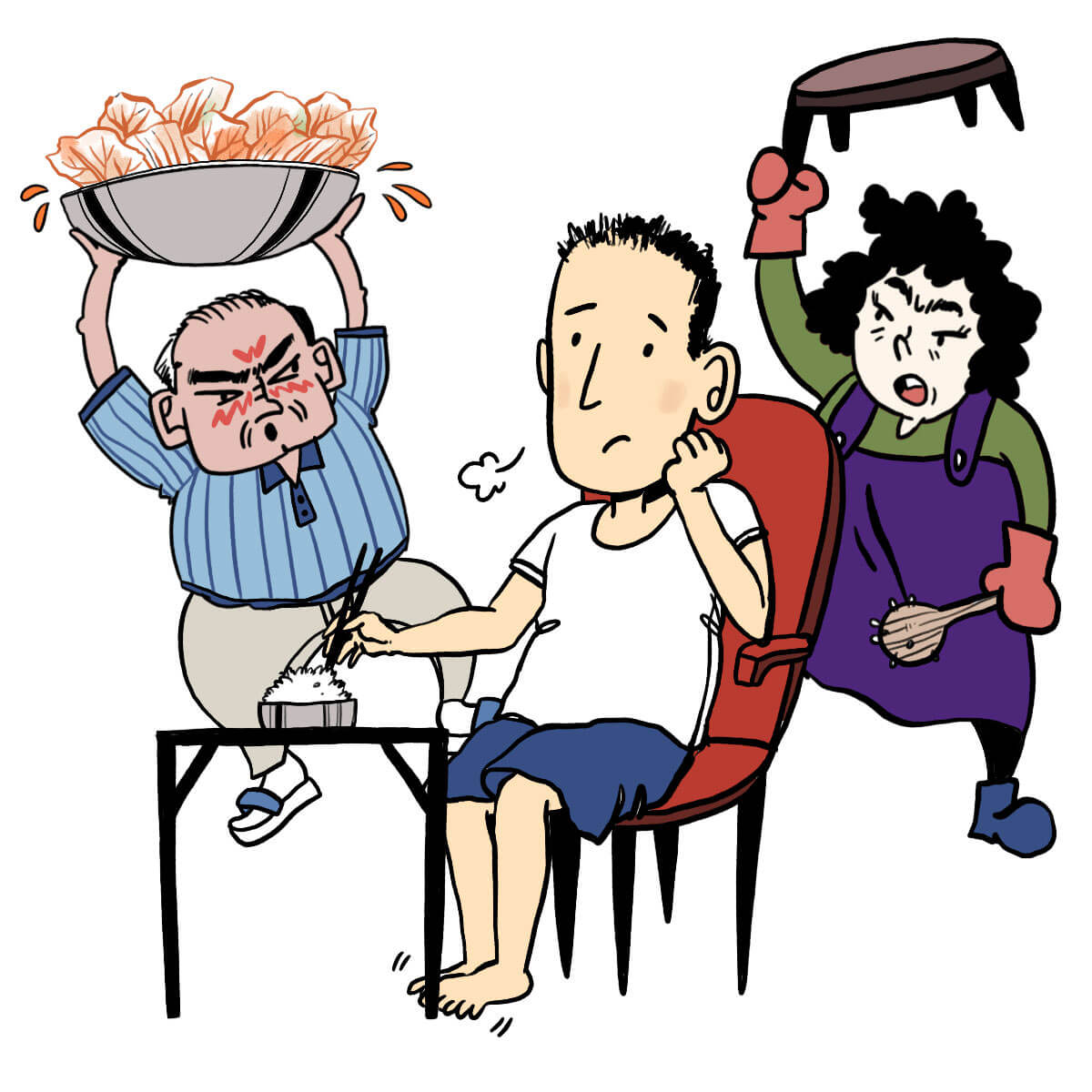
Throughout my ongoing counseling process and the prayerful discernment about the move, God has repeatedly affirmed that my allegiance is not to this country and that my ultimate home is not here. The U.S. would never live up to her ideals; democracy will not save us; more progressive policies and good governance will not and cannot make me feel at home. I also have no illusion that somehow the South Korean republic is fundamentally different.
What I’m hoping for is a miracle; what I’m asking of myself and God cannot be done by simply putting my body in one time zone as opposed to another. A shift in the internal state of a human being, whether voluntarily or by an external force, is rarely accomplished by one person’s will. Though I’m told I’m to repent on a daily basis, I find it next to impossible to suddenly see differently. Yet that’s the bet I’m wagering with the move, to see the same God differently, outside the white economic, literary, and theological space, and slowly let myself communicate with the land where I was born. The only way I will find out whether perspective can change, memories can alter, or a future can be named, is to be fully present as a physical person living on the soil of my motherland.
• • •
The airline staff member begins announcing boarding time, and folks who have been waiting at the gate slowly get up on their feet, picking up their things. I finish my coffee, scan the boarding pass on my phone, and scoot down the line in the afternoon sunlight. It’s going to be different, again, I hear the girl within me speak. I know, it’s been a long time coming, I answer. Let’s find out what we’ve wondered all these years.
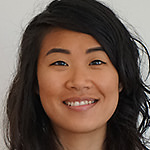
Hatty Lee cut her teeth on organizing at UC Berkeley to disaggregate Asian American student data and to establish a permanent home for the Multicultural Community Center. She learned from the most amazing folks while organizing tenants in the Tenderloin for affordable housing, healthcare, and community governance. Her love for Jesus and her peoples has taken her from a full-time ministry in Berkeley to neighboring in Seoul, throwing down with an anti-Trump PAC, and then to decolonial theologies, with doctoral work in Ancient Near East and the Hebrew Bible in view. Her research interests include folklore, trauma narratives, ritual studies, and diasporas in the HB. She believes in coffee, hosting Zoom communions, and sharing Netflix & HBOMAX accounts. You will most likely find her in the Yale Divinity School library or her advisor's office hours.
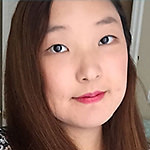
Ellen P. Lea is a Floridian artist who specializes in conceptual illustrations based on society, portraits, cover designs, and viz-dev. She loves food, dogs, and her two beautiful younger siblings. Although her days are busy, she enjoys contributing to great causes with her illustrations when life needs them. She finds Inheritance magazine an inspirational part of her life due to her once being a lost, questioning soul herself, who now has found her true self. You can find her at: ellencreative.com.